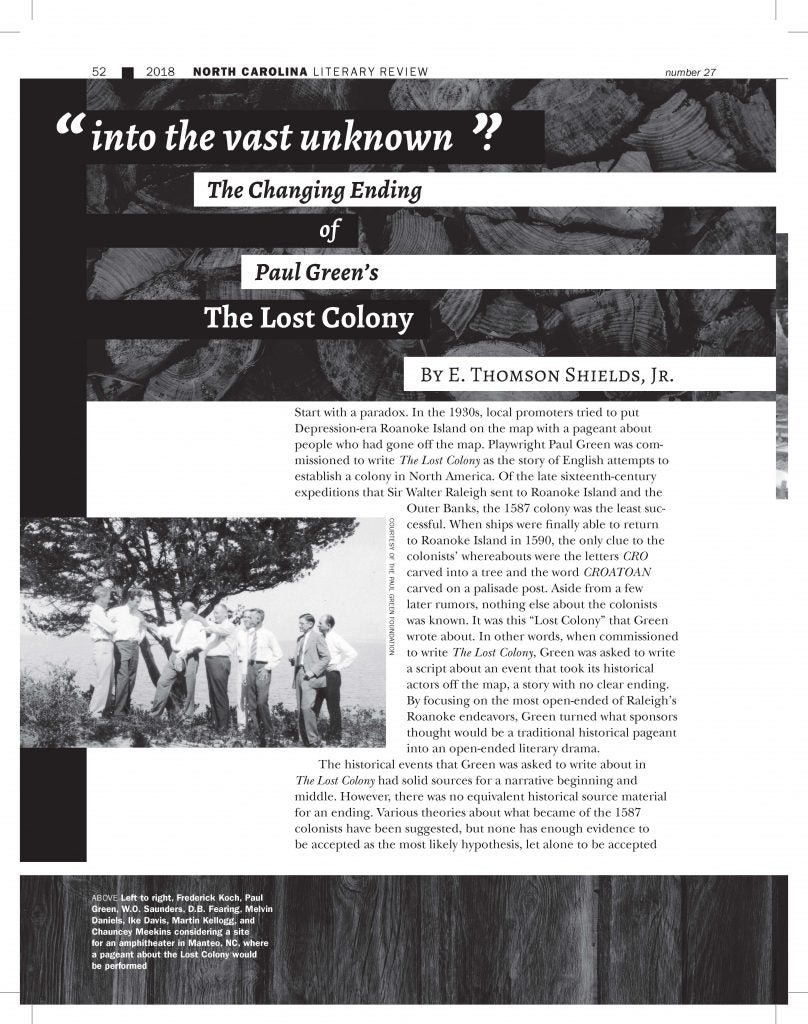Friday from the Archives: “into the vast unknown”? The Changing Ending of Paul Green’s The Lost Colony By E. Thomson Shields, Jr. from NCLR Issue 27 (2018)
It’s the unofficial start of summer, which means one of North Carolina’s most well-known stories and summer adventures is getting started for the season. The outdoor symphonic drama The Lost Colony has been important to several North Carolina industries over the years. It remains an important driver of tourism to the Outer Banks, as when it first started in 1937, and has contributed to both North Carolina’s grassroots theatrical community and also to Hollywood and Broadway’s compendium of talent both on and backstage.
Playwright Paul Green chose to amplify the mystery of the colony, reworking and rewriting the ending over the course of forty+ years. Shields gives context to this new form Green was attempting to create: “To script his version of history, Green decided to work with a new aesthetic, a new theatrical genre he was trying to develop. Green coined the term symphonic drama to describe the genre of this and several of his other works.” Rather than a static pageant or a dramatic talking play, this new form included “folk song, poetry, dance, pantomime, chorus voices, music, and even technical elements, such as lighting and microphones.”
As every North Carolina student knows, there isn’t yet a satisfactory conclusion to the story of the colonists. Green held true to this enigma by revamping the ending of the play. “Using both the traditional tools of the naturalistic playwright, the words spoken and basic stage directions followed by the actors, along with the technical tools Green made available to himself by creating his new genre of the symphonic drama,” Shields wrote, “Green continued to revise The Lost Colony between 1937 and 1980 in a search to find the balance between the needs of a historical commemoration and of a literary drama.”
Who knows how Green might adapt the story today. We can appreciate having this part of our history memorialized but not frozen, both honoring stories and also bringing new human understanding to problematic pasts. The Lost Colony (along with the other long-running symphonic dramas Horn of the West in Boone and Unto These Hills in Cherokee) runs throughout the summer.
Read the entire article at Gale Cengage (via NCLive) and order the 2018 issue for your collection.
